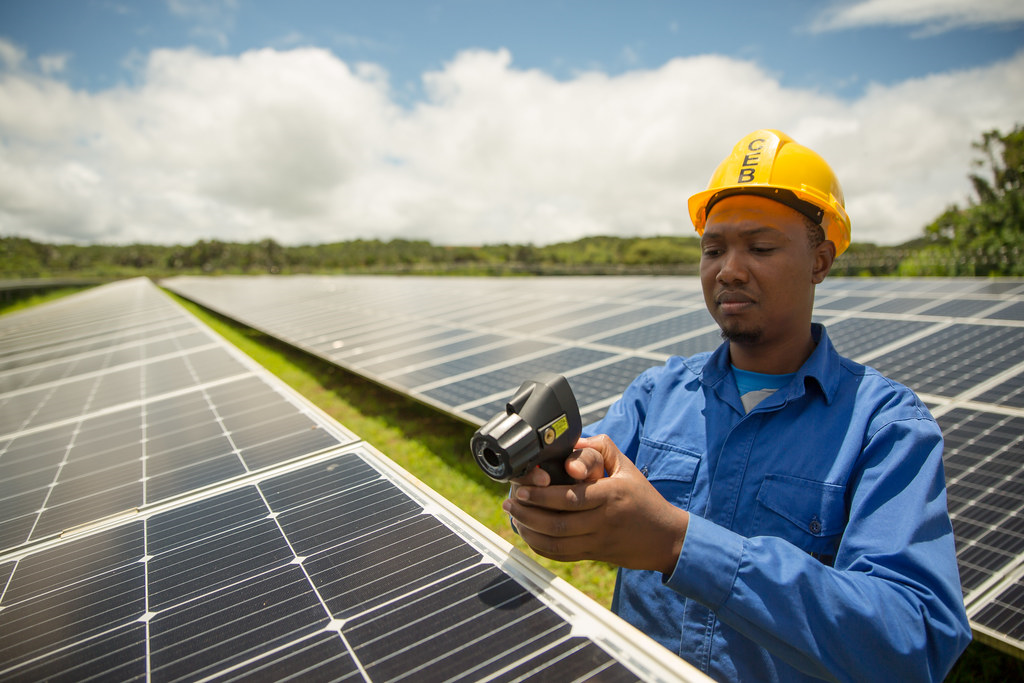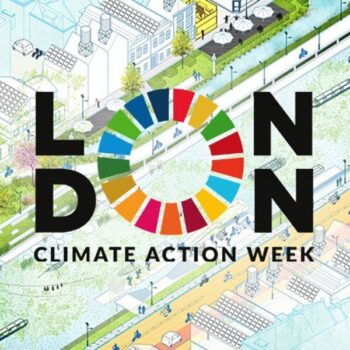Watch recording
Event summary
National Grid and E3G hosted this public event on the crucial role of grids in the global energy transition from fossil to clean power. The workshop outlined the political, financial, and technical challenges in modernising existing grids and highlighted the positive, innovative solutions that are increasingly available to upgrade grids to service and catalyse an increasingly decarbonised world.
There was no doubt about the critical role of grids in enabling and accelerating a global energy transition. It was clear that building sustainable green grid infrastructures in countries and regionally was both a technical and political challenge. The pace at which green grid infrastructure needs to be upgraded and built was noted as an additional challenge, especially acknowledging the continued growth of energy demand. Building green grid infrastructure requires a whole system approach and cannot be thought of in terms of individual infrastructure projects.
Kate Hughes (Director International Climate Change, UK Department for Business, Energy and Industrial Strategy) highlighted that in the year of COP26 we needed to be “ambitious, collaborative and innovative,” noting that some initiatives to build trust and confidence were already underway, such as the Green Grids Initiative and the Energy Transition Council. The time is short, though, and action was needed urgently. Sean Kidney (CEO, Climate Bonds Initiative) argued that “capital is ready to move” but that we needed 3 to 4 times the current investment to accelerate green grid deployment. Green bonds were increasingly attractive to those building a sustainable portfolio, though investors were still less attracted to investment in the underlying grid infrastructure as opposed to renewables themselves and needed greater encouragement and confidence to do so.
In session one, on the challenges of building green grids, Aboubakr Benazzouz (R&D Project Manager – PV Systems and Smart Grids – Research Institute for Solar Energy and New Energies (IRESEN), Morocco) spoke about challenges in Morocco including meeting energy demand and the need for skills and knowledge sharing. Elizabeth Press (Director of Planning and Programme Support, IRENA) reflected on the challenge of attracting investment while underlining the crucial importance of a holistic approach including factoring in energy efficiency and the grid value chain.
Craig Dyke (Head of International Decarbonisation, COP26 National Grid) introduced session 2 by outlining that political will, private and public finance, cooperation, and peer to peer support had to align. Jagjeet Sareen (Assistant DG, International Solar Alliance, India) and Katherine Dixon (Chief Counsellor, Transitions and Partnerships, IEA) emphasized the need for regional grid integration, investment, collaboration, and strong institutions. Sareen outlined that the International Solar Alliance aimed to produce at COP26 a detailed financial and techno-economic study on global green grids feasibility. Priyantha Wijayatunga (Director of South Asia Energy Division, ADB) added that there was a need for more political push and alignment of institutions, such as utility providers, in-country to accelerate grid integration.
Speakers discussed the need to go beyond energy system costing and understand macro-economic elements through a systems perspective, to build a case for large reforms. Four factors stood out as crucial: (1) pace; (2) growth of demand; (3) radical market and technical, regulatory reform; and (4) regional interconnection and integration.
Key Takeaways from event on the crucial role of grids in the global energy transition:
- Green grids development and the acceleration of green grid infrastructure is not just a technical but a political challenge and needs to be understood through a whole system approach, by, for example, including energy efficiency regulation
- Grid diplomacy is needed to help unravel the political challenges, drive political cooperation, regional interconnection, and market integration
- Public engagement and buy-in, catalysed by private sector finance, needs to be at the core of developing green grid infrastructure at both scale and pace
- Improved global energy governance and architecture, fostered by deeper political attention is needed to enable capitalisation, skills sharing and alignment of systems to help drive radical market reform
- Global energy governance needs to agree and develop the most suitable mechanisms to drive radical market reforms, regional integration, and a whole system approach
- Initiatives developing for COP26 in Glasgow, such as COP26 Green Grids Initiative or the work of the Energy Transition Council, need to be just the beginning, not the end of a process towards green grid infrastructure deployment at an unprecedented speed and scale to secure a pathway to net zero.
Agenda for event on the crucial role of grids in the global energy transition
Introduction: Green Grids and the Global Energy Transition – 09:00-09:20 BST
- Moderator: Nick Mabey, Chief Executive, E3G
- Kate Hughes, Director, International Climate and Energy, BEIS
- Sean Kidney, CEO, Climate Bonds Initiative
Session I: Identifying and overcoming challenges – 9:20-10:00 BST
- Aboubakr Benazzouz, R&D Project Manager – PV Systems and Smart Grids – Research Institute for Solar Energy and New Energies (IRESEN), Morocco. 7-8 mins
- Elizabeth Press, Director of Planning and Programme Support, IRENA. 7-8 mins
- Q&A. 15-20 mins
- Break. 5 mins
Session II: Accelerating a green grid infrastructure – 10:05-10:50 BST
- Introduction: Craig Dyke, National Grid. 7-8 mins
- Jagjeet Sareen, Assistant Director General, International Solar Alliance. 7-8 mins
- Katherine Dixon, Chief Counsellor, Transitions and Partnerships, IEA. 7-8 mins
- Priyantha Wijayatunga, Director of South Asia Energy Division, ADB. 7-8 mins
- Q&A. 15-20 mins
Closing Remarks – 10:50-11:00




